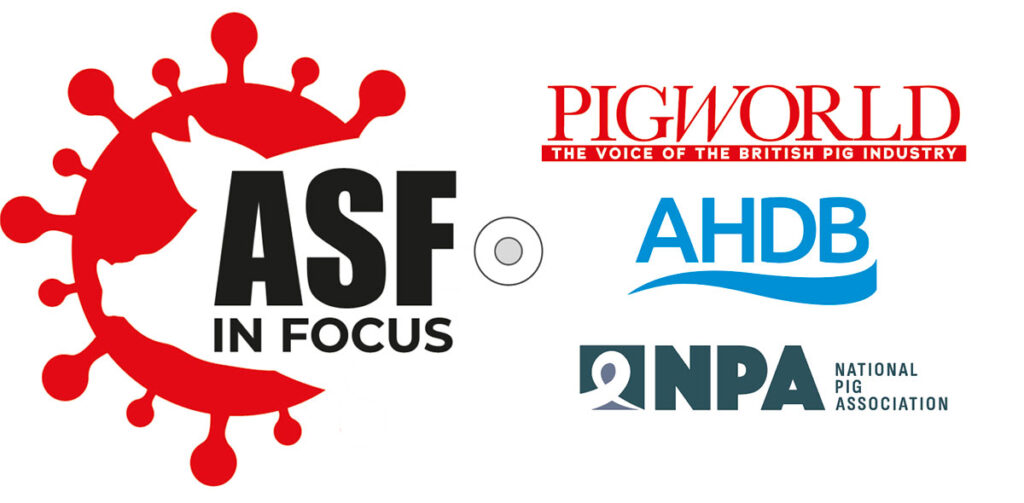The single biggest threat to the wellbeing of the British pig industry is African swine fever (ASF).
The virus continues to circulate on three continents, including Europe, where it has made alarming, unexpected jumps to new parts in recent years, including Belgium, Germany, northern Italy and Sweden.
The effect of an outbreak would be immense, potentially bringing local or national movement restrictions, large-scale culling on farms, damaging trade bans and huge costs to industry and government, not to mention the mental health impacts for those on the front line.
Defra estimates that an outbreak could cost the UK £10-100m. The real cost could be much greater if a prolonged export ban was imposed – UK exports in 2024 were worth around £600m.
Campaign focus
We start with a look at the global ASF situation and, over the following months, we will address:
- Preventing and preparing for ASF
- National, farm and supply chain biosecurity
- ASF rules in the event of an outbreak
- Vaccine development
- Trade implications
- Farm assurance
- Mental health implications
- Smallholders.
Woefully inadequate
It is painfully evident that the UK’s border defences are woefully inadequate to cope with the organised illegal meat trade into Great Britain, much of it from countries and regions infected with ASF, sent as a result of, and in defiance of, export restrictions.
This threat is not just from Europe, with large amounts of illegal meat also coming into the UK from Asia and Africa.
Indeed, the Animal and Health Plant Authority’s latest ASF assessment confirmed that the risk of ASF entering Great Britain via the human-mediated pathway remains ‘High (occurs very often)’.
The truth is that the virus may already be lurking in the country – or, if not yet, it could arrive at any moment. This raises a number of questions:
- Will the government ever take this risk seriously?
- Are the UK’s farms and the pork supply chain doing everything they can to prevent the virus reaching pigs?
- Does the government have a workable plan for how it will respond in the event of an outbreak?
- Are all parts the industry – producers, processors, retailers, vets, the allied businesses, hauliers and those who would be involved in culling – truly prepared for how they will be affected and would need to respond?
A new campaign
With this in mind, Pig World has teamed up with AHDB and NPA to launch a new ‘ASF in Focus’ campaign that will seek to answer these questions and more.
Mandy Nevel, AHDB head of animal health and welfare, said: “As ASF continues to wreak havoc in parts of Europe and other parts of the world, keeping it out of the country and out of our pigs is our aim, and everyone can play a role.
“Working together and all playing our part is vital – it is no single person’s or single organisation’s role to tackle this. True partnership is the only way we can reduce the risk and mitigate any impact, should an incursion occur.
“I urge everyone, no matter how big or small their contribution, to work together to do what they can in their own situation and for the sake of the industry.
“While the focus here is on ASF, this work will pay dividends for many other diseases and situations, from swine dysentery and porcine reproductive and respiratory syndrome to trade and processing disruptions.”
NPA chief policy adviser Katie Jarvis added: “Since we became aware in early 2024 that neither industry nor government were fully aware of the impact that ASF would have in the UK, the NPA and AHDB have been working together to educate the industry as much as possible.
“Most people in the pig sector and in Defra have never dealt directly with an outbreak of notifiable disease in pigs, so it is essential that we educate as many people as possible about the consequences if we had an outbreak today.
“It is not just producers and those who work on farms day to day who have responsibility for this, but also the wider allied industry.
“Most importantly, we want everyone to be aware that ASF can be prevented – it is not inevitable that we will have an outbreak on a farm. Everyone has a part to play in ensuring biosecurity and preparedness.”




